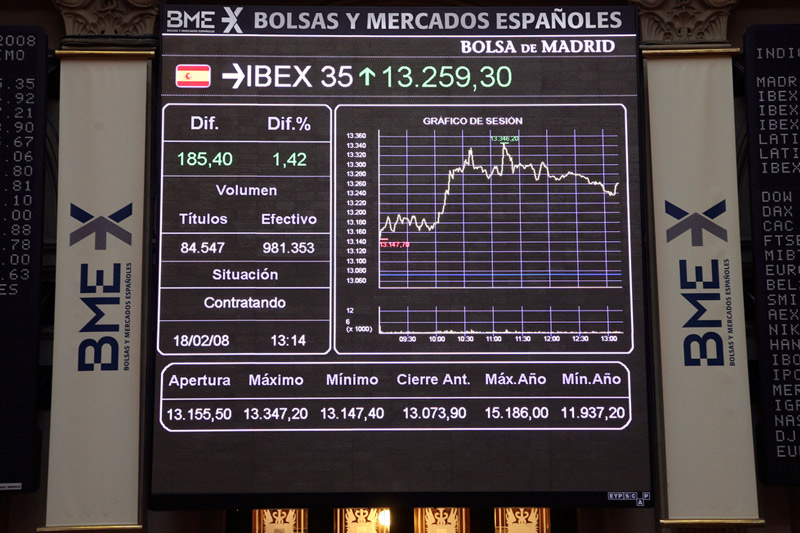By Geoffrey Smith
Investing.com -- It’s another up day in Europe as the news flow provides ever more data points to suggest that the economy is bottoming out and, more importantly, that the policy response is becoming more coherent and effective.
In contrast to the last two days, there are pockets of red on the screen, but they are largely confined to those indices less dominated by cyclicals, which have switched from being the big underperformers to the big outperformers.
By 5:30 AM ET (0930 GMT), the benchmark Stoxx 600 was up 0.7%, with the Spanish IBEX 35 once again leading the way with a 2.2% gain. It’s now up nearly 7% over the last week, in response to the reopening of the important tourism sector at the weekend.
The underperformers are the Netherlands, where the AEX was dragged down by losses in the tech stocks that had seemed to be the safest haven for much of the last two months: Prosus (AS:PRX), Just Eat Takeaway (AS:TKWY) and payments company Adyen (AS:ADYEN). Likewise, Copenhagen’s OMXC index, dominated by pharma and renewable energy stocks, is also suffering from the rotation into cyclicals.
After two days when the travel and leisure sector posted the biggest gains, it’s the turn of the beaten-down bank stocks to lead the mean reversion.
The STOXX Banks index was up 4.3% at its highest level since the end of April, and has now rallied 18% in the week since the highly-regarded research house Autonomous argued that the sell-off had gone too far.
Autonomous’ analysts had argued that first-quarter results had held up better than expected, and that policy action from the EU and European Central Bank had helped to remove some of the tail risks facing the sector.
According to data compiled by Investing.com, European banks currently trade at half the value of their assets, a valuation that reflects not only the challenges of making a profit in the negative interest rate environment, but also the very real risk that a large part of their loan book will default as companies go bust and jobless households lose the means to service their debts. It’s easy to see why six of the best 11 performers in Spain this week have been banks, with their high exposure to a sector that represents 11% of GDP.
But from the outset, it has been clear that European policymakers were determined not to let a crisis that started in the real economy infect the financial system and create a destructive vicious spiral. President Emmanuel Macron’s promise that not a single company would be allowed to go bankrupt because of Covid-19 may have been an unrealistic over-simplification, but succeeded in getting the main point across.
That determination at official level is now being underlined with ‘the European Commission’s proposals for a 750 billion-euro European Recovery Fund, two-thirds of which is to be distributed as grants, not loans. While the proposals are likely to be opposed by a handful of smaller member states, the fact that Germany, the union’s paymaster, now supports the idea is a major difference between today and the euro crisis a decade ago.
The markets had judged the EU’s halting initial reaction to the crisis harshly but have shown increasing confidence in it as its institutions have pulled together over the last month. Sovereign bond yield spreads – a rough proxy for eurozone breakup risk – have shrunk to their lowest in seven weeks, another factor supporting bank valuations.
It may be hard to get excited fundamentally about the outlook for European banks, but they are uniquely susceptible to being oversold. The Stoxx 600 banks index is now approaching some tough resistance. The reaction to today’s Commission paper – and a likely expansion of ECB stimulus next week – will show just how much (or how little) life there is left in the sector.
